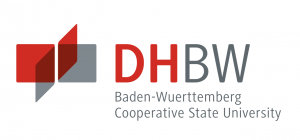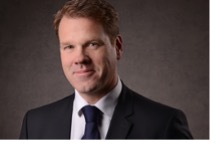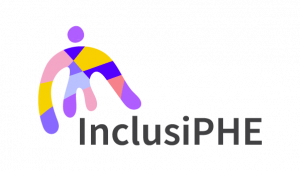Baden-Wuerttemberg Cooperative State University (DHBW)
Who are we?
Baden-Wuerttemberg Cooperative State University (Duale Hochschule Baden- Württemberg – DHBW) with its main seat in Stuttgart is the first higher education institution in Germany to integrate academic studies with workplace training within the curriculum. This means that students regularly switch, every three months, from their academic studies at the university to practical training at their partner company. The nine main locations and four branch campuses with its more than 780 professors build Germany’s first state university system. With more than 34,000 enrolled students, more than 9,000 partner companies and more than 141,000 graduates, DHBW is the largest university in the South of Germany. The university has implemented an award-winning digital strategy in its innovative teaching and learning model. Apart from international and European research integration it is also undertaking very innovative partnerships with local companies in order to realize cooperative research projects. All degree programs are both nationally and internationally accredited, count as intensive study programs and are worth 210 ECTS credits. In addition, DHBW offers career-integrated postgraduate study programs at its Center for Advanced Studies.
Württemberg – DHBW) with its main seat in Stuttgart is the first higher education institution in Germany to integrate academic studies with workplace training within the curriculum. This means that students regularly switch, every three months, from their academic studies at the university to practical training at their partner company. The nine main locations and four branch campuses with its more than 780 professors build Germany’s first state university system. With more than 34,000 enrolled students, more than 9,000 partner companies and more than 141,000 graduates, DHBW is the largest university in the South of Germany. The university has implemented an award-winning digital strategy in its innovative teaching and learning model. Apart from international and European research integration it is also undertaking very innovative partnerships with local companies in order to realize cooperative research projects. All degree programs are both nationally and internationally accredited, count as intensive study programs and are worth 210 ECTS credits. In addition, DHBW offers career-integrated postgraduate study programs at its Center for Advanced Studies.
Why we are Participating in the Project
DHBW has broad experience in researching on and implementing innovative ways of teaching and learning in order to enhance students’ future skills through innovative course contents and learning designs for building competences. The research group NextEducation (https://next-education.org/) builds on vast experience of involvement in many European and international projects throughout the past decade and has developed a specific strand of student-centered research, having developed the first and award-winning student-centered quality model for e-learning in Europe in 2004. The team has been involved in different EU projects concerning skills building and assessment, use of open educational resources and qualification recognition procedures in vocational and professional higher education contexts. Due to its profile, DHBW has strong ties and regular exchange with professional organizations and companies in the region, exchanging ideas about the demands on future graduates. With innovative approaches and digital teaching strategies, DHBW tries to approach non-traditional learners.
Our Role in the Project
Our team will contribute to all parts of the project with our longstanding expertise in international comparative educational science and systems analysis, and will lead the needs assessment for student’s engagement of non-traditional students in PHE. This will be about defining profile of PHE students and learners and their specific needs, challenges and barriers to student engagement. Furthermore, we support the development of guidelines and action plans and provide recommendations based on the results of our first project outputs.
• Leading the mapping exercise for needs assessment for students’ engagement of non-traditional students in Professional Higher Education
• Desk research to define the profile of non-traditional students in PHE
• Input in developing a framework for benchmarking and self-assessment and guidelines for inclusive engagement action plans in PHEI
• Dissemination of the InclusiPHE project results (regionally, nationally and internationally)
Our Team

Ulf-Daniel Ehlers
Ulf is an internationally recognized researcher and innovator in the area of E-Learning. He has extensive experience in helping individuals achieving superior learning performances and has run lighthouse initiatives in the field of e-learning and knowledge management as well as e-business, including knowledge-technology consulting for small and medium sized enterprises.

Marina Brunner
Marina Brunner is a researcher at DHBW and currently doing her PhD in the field of higher education and future skills. She has a Bachelor‘s degree in Marketing Communication and a Master’s degree in Digital Business. During this time, she worked in business development and supported digital transformation projects.

Laura Eigbrecht
Laura Eigbrecht is a researcher at DHBW and currently doing her PhD in the field of higher education and future skills. After completing her Bachelor’s Degree in European Media and Culture and her Master’s degree in Kids and Youth Media, she worked with media, migration, language and education.

